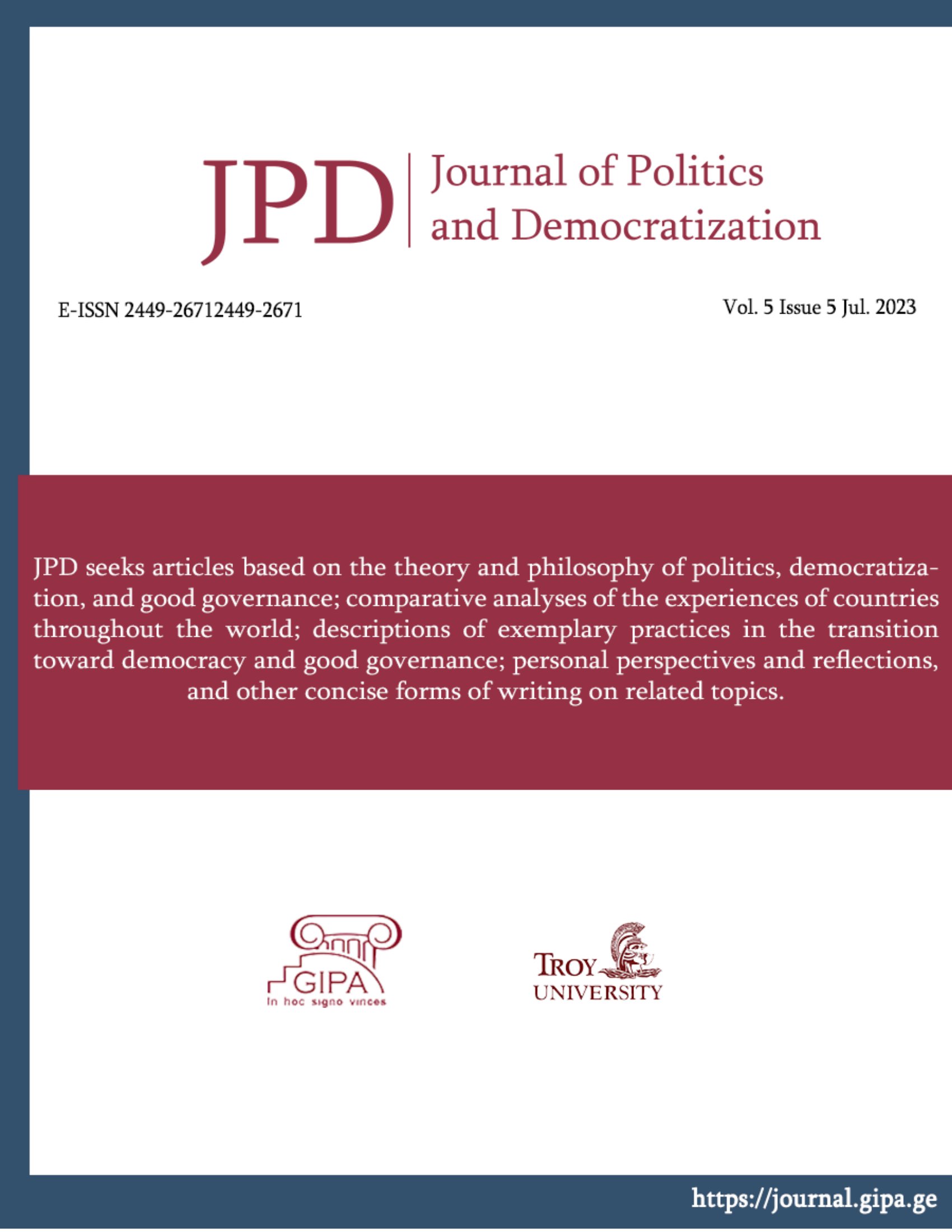Structural Realism and Georgian Foreign Policy
Main Article Content
ანოტაცია
According to shared opinion, Georgia forged the western foreign policy after the rose revolution. The new elite who came to power after a bloodless uprising aspired to integrate the country into NATO and the E.U. Some scholars believe that Georgian western course is the outcome of the rose revolution. Therefore, they explore the process through the Liberal lens of international relations theory. On the other hand, Georgian foreign policy is regarded as a continuation of the course developed during the previous – Shevardnadze's – rulership, and the strategy can be explained via neoclassical realism theory. Another author goes further
and uses offensive Realism for the Russian-Georgian War interpretation. The article aims to demonstrate that Georgian foreign policy from 1993 to 2012 can be examined through a Structural realism lens, and external factors play a significant role in designing foreign course.
